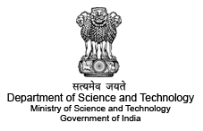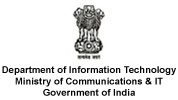About Mumbai:
If you were looking for a summary of the enormousness that is India, Mumbai would be it. India's commercial and entertainment capital, Mumbai draws dreams like a magnet. If not for Mumbai, Indians would be a largely bored lot. The nation's movies are made here, the nation's money is made here, and the nation's fashion statements are made here. And for what was born as a fishing colony, there's enough for the millions who come here to cast their nets. And millions more who want to.

Originally a discrete cluster of 7 islands, Mumbai underwent several large-scale civil engineering projects that merged them all into a single amalgamated mass, between 1782 and 1784. 'Civil' engineering is still an apt term for the magically uniting force that seems to keep the city together and reverberating, round the clock. Widely acknowledged as The City with something for every kind of person, irrespective of race, creed, age, sex or educational background, Mumbai is very clear about what its main natural resource is - its people, many of whom are incidentally here from elsewhere.
Mumbai, formerly Bombay, lies on the west coast of India, and is the capital of the Indian state of Maharashtra. The city proper is the second-most-populous city in the world, with approximately 14 million inhabitants. Along with the neighbouring suburbs of Navi Mumbai and Thane, it forms the world's 4th largest urban agglomeration, with around 19 million people.

The 7 islands that came to constitute Bombay were home to communities of fishing colonies. For centuries, the islands came under the control of successive kingdoms and indigenous empires before being ceded to Portuguese settlers, and subsequently to the British East India Company. Bombay emerged as a significant trading town during the mid-18th century, and economic and educational development characterised the city during the next century. It became a strong base for the Indian independence movement during the early 20th century, and when India became independent in 1947, the city was incorporated into Bombay State. In 1960, following the Samyukta Maharashtra movement, a new state of Maharashtra was created, with Bombay as the capital. It was renamed Mumbai in 1996.

The city generates 5% of the total GDP of India, and is home to important financial institutions including the Reserve Bank of India, Asia's oldest stock exchange the Bombay Stock Exchange, and the National Stock Exchange of India. The corporate headquarters of many Indian companies and multinational corporations are housed here too.
The port and shipping industry is well-established, with Mumbai Port being one of the oldest and most significant ports in India. Also, most of India's major television and satellite networks, as well as its major publishing houses, are headquartered in Mumbai. The city is home to Indian cinema, housing Hindi film and television industry, known as Bollywood. Bollywood, one of the two things that unites India, other than cricket, went international in the 2000s, and produces upto 200 films a year.
In addition to native Maharashtrian culture, Mumbai has influences of the Portugese (who were actively involved in the foundation and growth of their Roman Catholic religious orders here), and the British (who placed Mumbai at the head of all the Indian establishments of the British East India Company's) too.
Mumbai's culture is a blend of traditional festivals, food, music, theatre and visual arts. The city's artistic traditions are kept alive by several art galleries, both government-funded and commercially run, and literary pursuits are pretty astronomical in nature and result, with some big names hailing from here - Booker Prize winners Salman Rushdie, Aravind Adiga, and Nobel laureate Rudyard Kipling, who received the Nobel Prize in Literature in 1907.
Mumbai has two UNESCO World Heritage Sites, the Chhatrapati Shivaji Terminus and the Elephanta Caves. If you're a first-time visitor here, you should all the places we just mentioned, and more - Nariman Point, Girgaum Chowpatti, Juhu Beach, and Marine Drive.
The Mumbai local train network, that consists of 3 separate networks running the length of the city in a north-south direction, is what keeps the city's blood pumping. It also keeps up the city's reputation for being the most maddeningly fast-paced metropolis in India. Mumbai is known to never sleep, and it is a wonder how it gets by with just 24 hours a day. It is stuff the equivalent of an Alpha Person would be made of, and indeed, in 2008, the Globalization and World Cities Study Group (GaWC) has ranked Mumbai as an "Alpha World City", third in its categories of Global cities.













